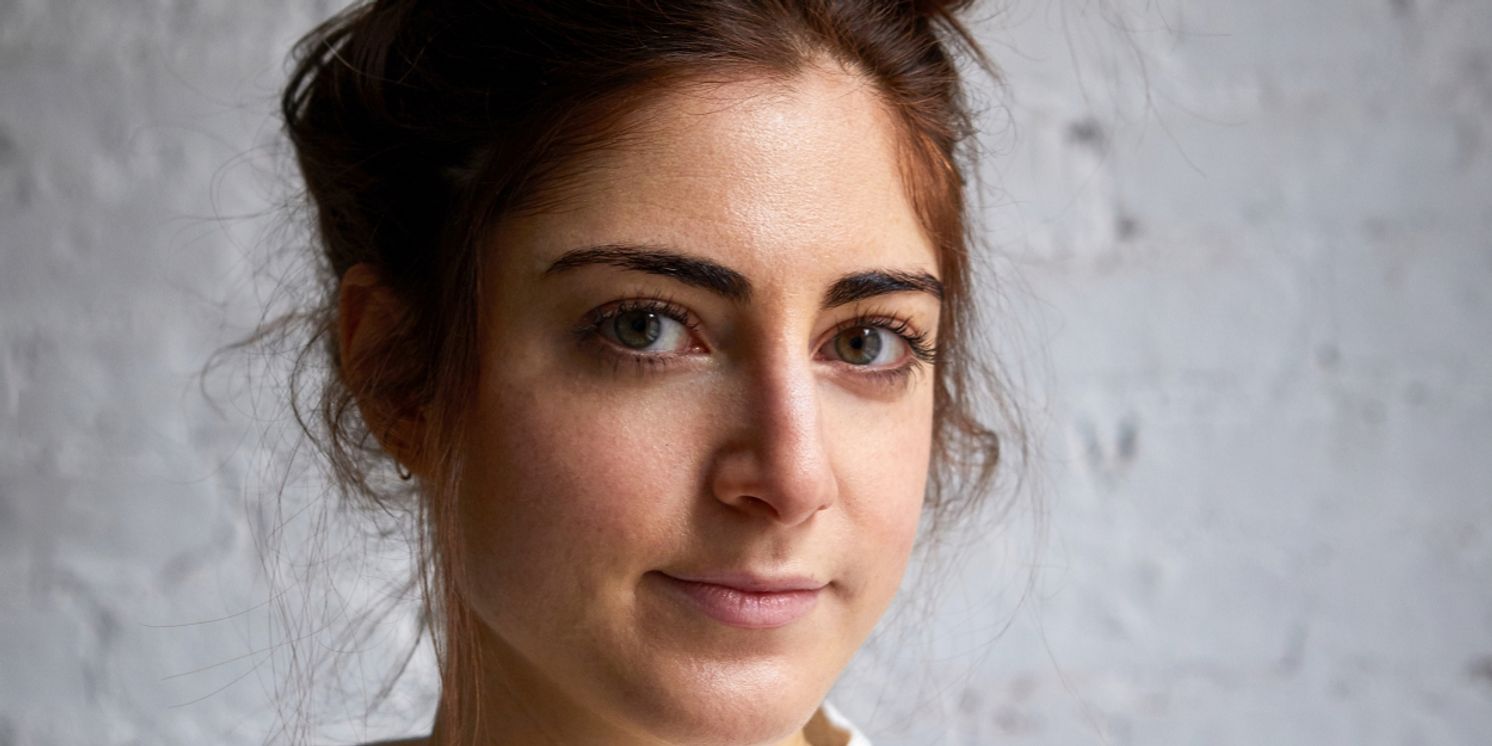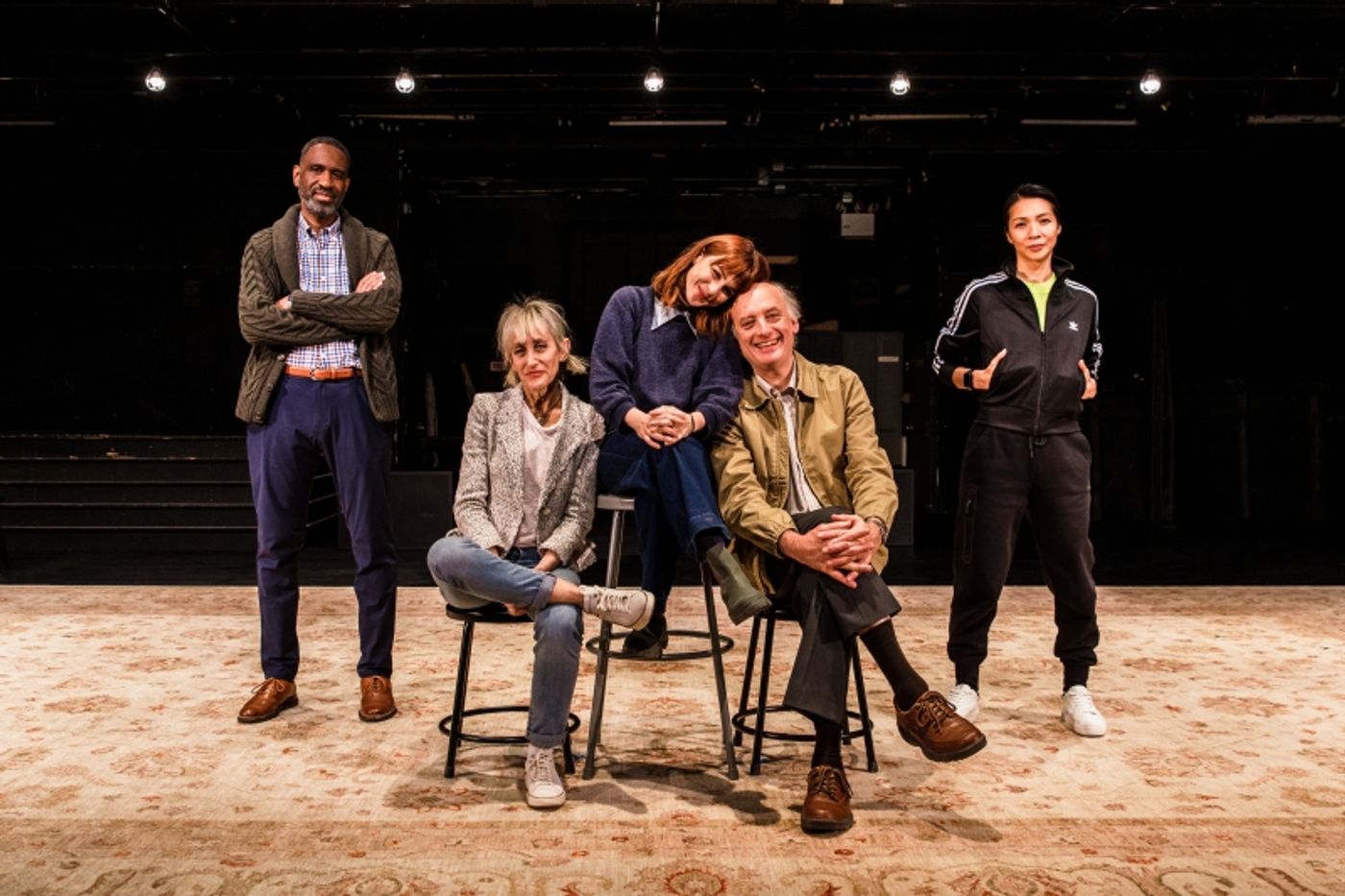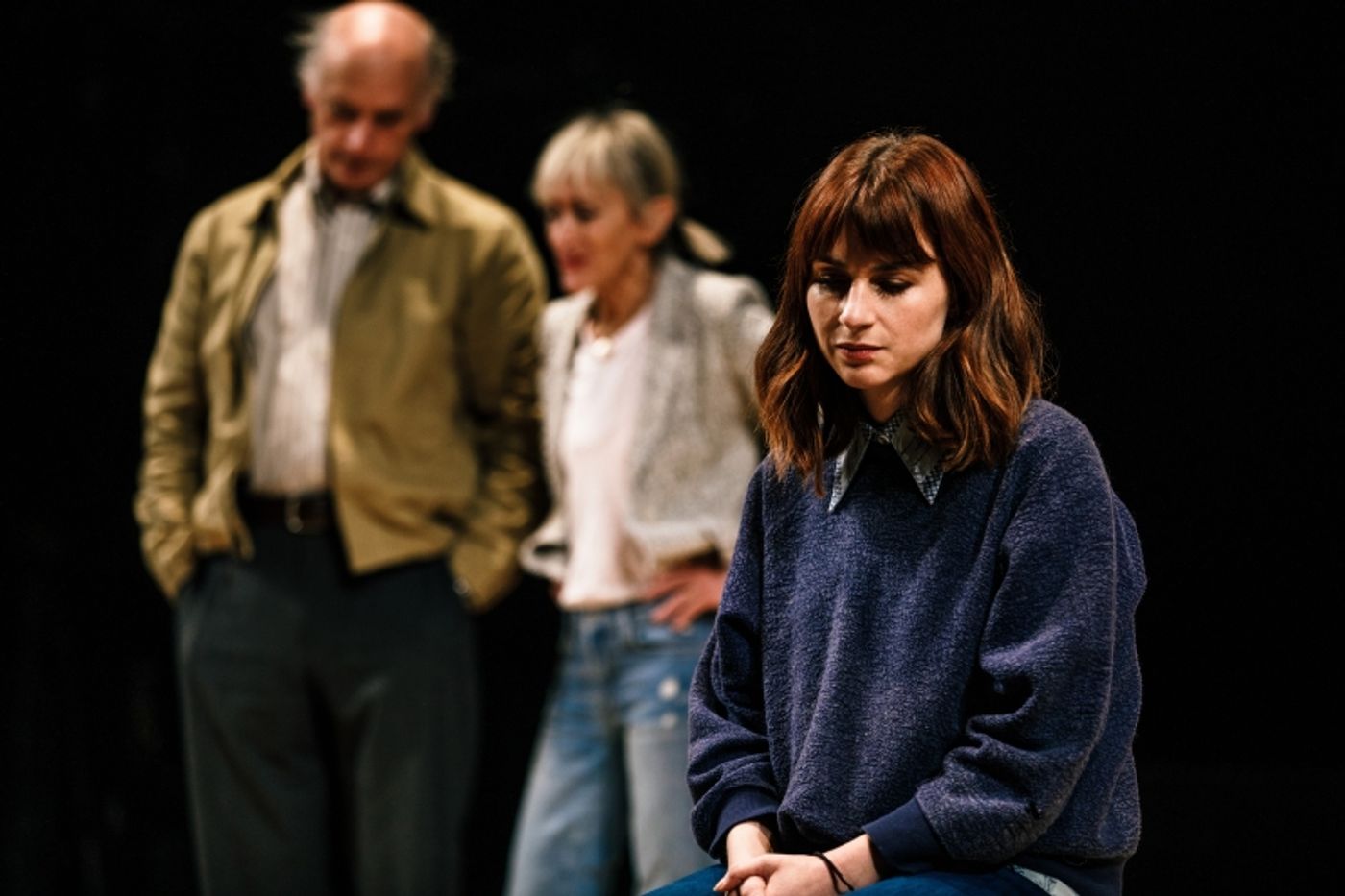Interview: Emily Feldman Talks 'Me Too' Origins of THE BEST WE COULD, Being Inspired by Thornton Wilder & More
Feldman shares how her creative process involves communing with her theatrical ancestors, and more.

Playwright Emily Feldman's The Best We Could (a family tragedy), directed by Daniel Aukin, is currently in previews at Manhattan Theatre Club, and is set to open on March 1. Written during the height of the Me Too movement in 2017, Feldman's Off-Broadway debut explores the relationship between a daughter and father amidst a changing cultural lanscape.
The cast of The Best We Could (a family tragedy) features Aya Cash ("The Boys," "Welcome to Flatch," Kings at The Public Theater), Brian D. Coats (August Wilson's Jitney at MTC / U.S. Tour, On The Levee), Maureen Sebastian (Lonely I'm Not, Thanks for Sharing), Constance Shulman (three-time SAG Award Winner for Best Ensemble in a Comedy Series for "Orange is the New Black"), and Tony Award® winner Frank Wood (Side Man, The Great Society).
The production's creative team includes Lael Jellinek (scenic design), Anita Yavich (costume design), Matt Frey (lighting design), Kate Marvin (sound design), Kelly Gillespie (casting), and lark hackshaw (production stage manager).
BroadwayWorld spoke with Emily Feldman about revisiting this play after it was supposed to open in 2020, being "haunted by the ghost of Thornton Wilder," and more.
The Best We Could is having its world premiere at Manhattan Theatre Club. Can you tell me what inspired you to write this play?
I started writing this play in 2017, which felt like a time when conversation around patriarchy and misogyny were sparking, especially between people of different generations, which were the conversations that I found most interesting. And in thinking about the many, many facets of the Me Too movement, I really started to wonder about the relationship between daughters and their fathers in all of it, and how damaging it is when a person you love can't attune to change.

And I wrote the play in about a year, I finished the first draft in the spring of 2018 with the help of a really wonderful development organization called SPACE on Ryder Farm. And I was in a transition moment in my life, I was in the process of moving across the country, and I was really writing to please myself, to try to express something that I was feeling at the time, and I didn't really think anybody else would be interested in it, but I'm glad that I was wrong about that!
Can you tell me a little bit about your writing process? The structure of the play is really interesting, so what does the creative process look like for you?
I do a lot of reading, and I reread things over, and over, and over again. I'm one of the many, many playwrights who are haunted by the ghost of Thornton Wilder, he really understood something about why we enjoy going to the theatre, and the possibilities of it, and there is something in his plays that turns the pedestrian events of our lives, like train and car travel, and daily chores, into something divine in a way that we know is true. That we are both doing really mundane things, and having these profound human experiences at the same time.
I've always been really interested in how inventive he was. We were writing at very different times in history, but I do feel like I'm in conversation with him and that there is something timeless about his themes. And I have always wanted to try the things that he tried. So, I think my process does involve communing with my theatrical ancestors, and figuring out, 'Who am I talking to in this play?' and 'What did they do in their plays that I'm interested in finding a way to do in my own way?'

How involved were you in the rehearsal process, and what has it felt like seeing the work brought to life?
I've been very involved, and it's actually been a very long process, because this play was scheduled to go up in May of 2020, which obviously did not happen. When the shutdown happened I put this script in a drawer, and I didn't look at it again until a few months ago when we started to prepare for this new production. And I tend to think of plays as time capsules that hit 'Save' on who you were and what you were thinking about when you wrote it, and in the last four years I've changed a lot, and our collective realities have changed a lot. And so, working on it now does feel a lot like meeting a former self in a way. But that distance is actually really helpful, and the themes and ideas of the play still feel really urgent to me, so I think it's really worked out the way it's supposed to.
We have a cast of New York's finest actors, and a really remarkably talented creative team, and it feels like something very special is happening. And I have a very deep and meaningful collaboration with the director, Daniel Aukin. I've admired his work for many years, he directed some of the first plays I saw when I moved to New York in 2009, and some of those productions were plays that made me think about trying to write plays when I was sort of just deciding what I wanted to do with my career. And we have been talking about this production for quite a while, and have really built our shared taste over time. We have a lot of mutual respect and trust between us. And I think that really relaxes the creative process a lot.
Like you'd said, this play was going to premiere mid-pandemic, before we knew there was going to be a pandemic. What has it been like rediscovering your material and feeling it through the distance of three years?
I think I was quite nervous before I opened the draft. I had this memory of it, and we had so much creative traction going into that production, because I think we were a week or two from rehearsals. We had a set in mind, we were actually in a different space than we're in now. So, I think, going back I was nervous that I wouldn't recognize the play or the person that wrote it. And I was really happy when Daniel finally pushed me to read it, and I read it, and I was like, "Oh, there's great stuff here! Yeah, there's stuff that doesn't quite feel like me anymore," and I did do some rewriting before rehearsal, but I was very careful not to take the wheels off the bus, to trust who I was four years ago, that there was intention behind it, and it actually gave us a lot of freedom in the rehearsal process, because I didn't have all of the answers.

I don't know if I would have had them four years ago or not, but we'd get to a moment, and we'd all be sitting there like, "Huh, so you could read it as this, or you could read it as that," And I'm like, "Yeah, I could see that too." I feel like I'm discovering it with the actors, in a way. And that feels really good, it feels like we're all on a level playing field in some way, shaping the thing together.
What do you hope that audiences take away from this play?
I think with this play in particular, what anyone takes away depends entirely on what their own life experience is. You can read it from a lot of different angles. It's not a very long play, but it's big in terms of the emotions, and the journey that it goes on. And so, I hope that it will be a really satisfying journey for an audience, that they'll be invited to find joy in the theatricality, and to feel something with the characters. If the play brings up any new thoughts or feelings for anyone, that's so great, but it's not up to me exactly what those are.
Photo Credit: Marc J. Franklin
Powered by
|
Videos

